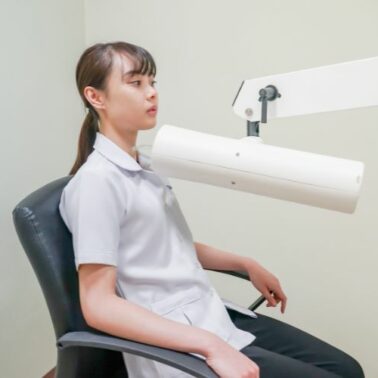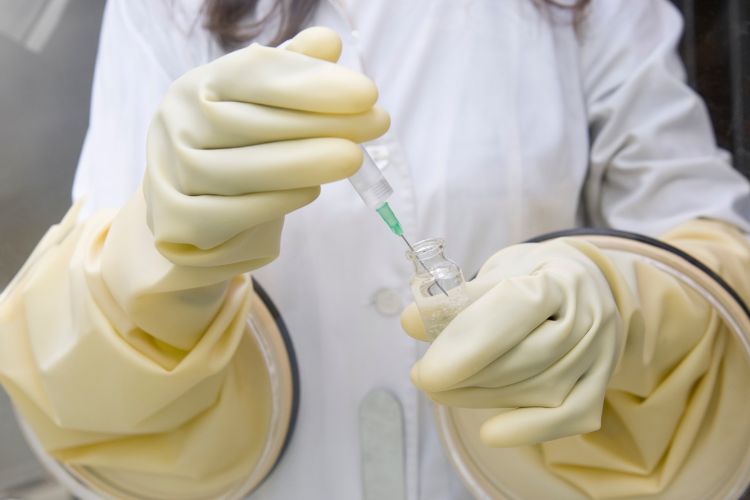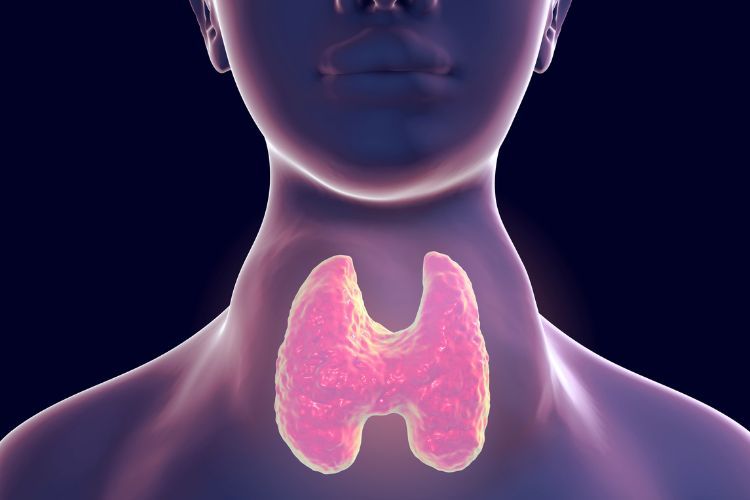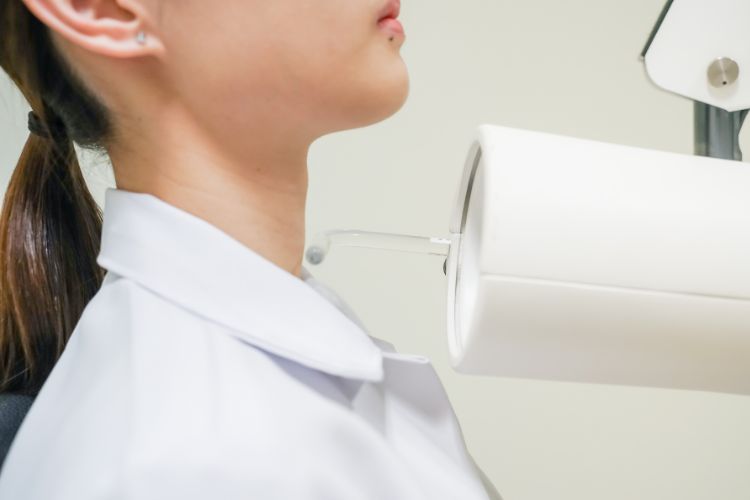
Managing Thyroid Disorders with Nuclear Medicine
Living with a thyroid disorder can be very challenging. It affects your energy levels, metabolism, and overall well-being.
Conditions like hyperthyroidism, hypothyroidism, and thyroid cancer need to be managed carefully so you can improve your quality of life. That’s where nuclear medicine comes in.
Nuclear medicine uses small, safe amounts of radioactive materials to create detailed images of your body. It can also deliver targeted treatments, giving your healthcare professionals essential insights into your thyroid health.
At PRP Diagnostic Imaging, we combine advanced medical technology with our caring, patient-first approach to deliver the best possible care for you and your thyroid health. Let’s take a closer look at how nuclear medicine can help you manage your thyroid disorder.
What is Nuclear Medicine?
Nuclear medicine uses small amounts of radioactive materials, referred to as radioactive tracers, to diagnose and treat a whole range of health conditions.
These tracers can be injected, swallowed, or inhaled. They allow doctors to see how your body is functioning at a cellular level.
Unlike traditional imaging techniques like X-rays or CT scans, which show the structure of your organs, nuclear medicine shows their function and activity.
This makes nuclear medicine particularly useful for spotting any abnormalities early and creating precise, tailored treatment plans.

How does it help you manage thyroid health?
The thyroid gland, which regulates your metabolism and energy levels, can be affected by different disorders like hyperthyroidism, hypothyroidism, and thyroid cancer.
Using nuclear medicine, doctors can perform thyroid scans and uptake tests to assess how well your thyroid is functioning.
A small amount of radioactive tracer is used, which your thyroid gland absorbs. Then, a gamma camera captures detailed images of the gland, showing its size, shape, and activity.
This helps healthcare providers diagnose conditions like Graves’ disease, thyroid nodules, and thyroiditis.
Plus, nuclear medicine can be used for treatments like radioactive iodine therapy, which targets and destroys overactive or cancerous thyroid tissue while minimising damage to surrounding areas.
Benefits of Nuclear Medicine for Thyroid Disorders
For Hyperthyroidism and Hypothyroidism
Nuclear medicine allows us to improve how we manage thyroid disorders, which is a huge benefit for our patients.
For hyperthyroidism, where the thyroid gland is overactive, radioactive iodine therapy is a highly effective treatment. This therapy involves swallowing a small dose of radioactive iodine, which is selectively absorbed by the thyroid gland.
The radiation works to reduce overactivity by destroying excess thyroid tissue, helping to bring your hormone levels back to normal.
In the case of hypothyroidism, where the thyroid is under active, nuclear medicine helps medical professionals get an accurate look at the situation at hand.
By assessing the uptake of radioactive tracer, doctors can determine the cause of your thyroid’s reduced function, whether it’s due to thyroiditis, Hashimoto’s disease, or other factors. This precise diagnosis is incredibly crucial for developing a truly effective treatment plan.
Patient Outcomes
The use of nuclear medicine in thyroid disorders has led to excellent patient outcomes and high success rates.
Radioactive iodine therapy for hyperthyroidism has been shown to be highly effective, with many patients achieving normal thyroid function after treatment. What’s more, this approach actually minimises the need for more invasive treatments like surgery, all while reducing the risk of recurrence.
For hypothyroidism, accurate diagnosis through nuclear imaging makes sure that patients receive the correct treatment, improving their symptoms and overall quality of life.
Nuclear medicine gives us crucial insights that lead to personalised treatment plans, meaning we can address the specific needs of each and every patient.

How Nuclear Medicine is Used in Thyroid Disorders
Through nuclear medicine, doctors can use radioactive iodine therapy to treat thyroid disorders, including hyperthyroidism and certain types of thyroid cancer.
The process begins with a consultation. Your endocrinologist or nuclear medicine specialist will assess your condition and explain the procedure.
During the therapy, you’ll swallow a capsule or liquid containing a measured dose of radioactive iodine. The thyroid gland absorbs the iodine, then the radiation starts to destroy overactive or cancerous thyroid tissue.
The procedure is usually done on an outpatient basis, meaning you can go home the same day. After your treatment, it’s important to follow safety guidelines to limit any radiation exposure to others, particularly children and pregnant women.
Radioactive iodine therapy is incredibly effective in reducing thyroid hormone levels and shrinking thyroid nodules or cancerous tissues. Our patients usually see improvements in their symptoms within a few months or even weeks.
We strongly encourage regular follow-up appointments so we can monitor your thyroid function and adjust any medications as needed.
Considerations and Safety
Potential Side Effects
While radioactive iodine therapy is generally very safe, it can have some side effects.
Common side effects include:
- Mild neck pain or swelling
- Dry mouth
- Changes in taste
- Inflamed salivary glands
- Feeling nauseous.
These effects are usually temporary and resolve all on their own.
Rarely, some patients may experience more serious side effects, like dry eyes or changes in their salivary gland function. Your healthcare provider will discuss all of these potential risks with you before you begin treatment.
Pre-Treatment Care
Before beginning your radioactive iodine therapy, you’ll need to follow specific pre-treatment guidelines. This will make sure the treatment is as effective as possible.
These pre-treatment guidelines may include avoiding foods that are high in iodine (like dairy, seafood, and eggs) and stopping medications that can interfere with your therapy. Of course, your doctor will give you detailed instructions and address any of your specific needs and concerns.
Post-Treatment Care
After your treatment, it’s important to take certain precautions and limit your radiation exposure to others for 3 days post treatment.
You may need to avoid close contact with children and pregnant women for a few days. We also recommend practising good hygiene, like frequent and thorough handwashing and using separate utensils. Staying hydrated will help flush the radioactive iodine from your body.

Nuclear Medicine: Your Key to Managing Your Thyroid Health
Nuclear medicine has been revolutionary for medicine and patient outcomes. We can use it to manage thyroid disorders, give precise diagnoses, and create effective communication plans — including radioactive iodine therapy.
These advanced techniques help regulate thyroid hormone levels, shrink nodules, and treat thyroid disorders with minimal side effects. This means our patients can achieve better health outcomes and a truly improved quality of life.
At PRP Diagnostic Imaging, we’re dedicated to delivering the best possible care with a patient-first approach.
If you’re experiencing symptoms of a thyroid disorder, or you need further information about nuclear medicine, reach out to your healthcare provider.
Our expert team is here to guide you through every step of your treatment journey. We will do everything we can to make sure you receive nothing but the best possible care for you and your thyroid health.
